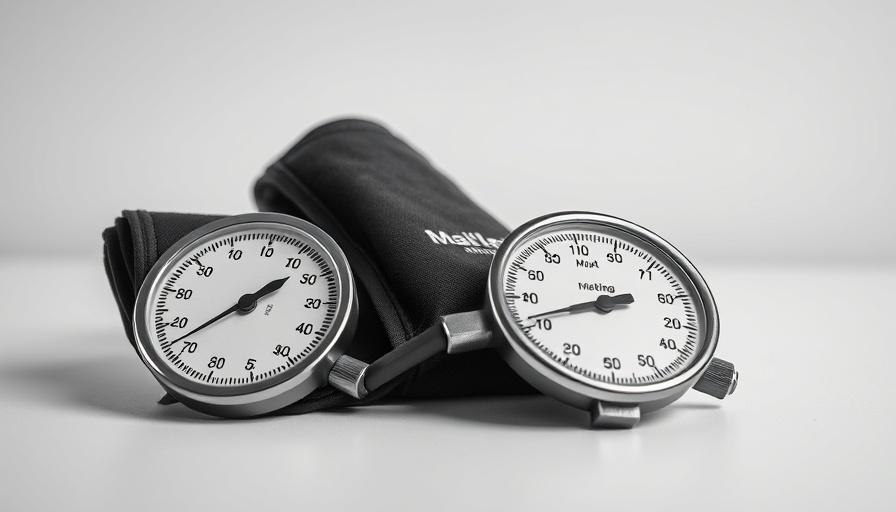
Understanding the Impact of Forever Chemicals on Teen Health
In a world increasingly aware of health risks, new findings about "forever chemicals" have surfaced, prompting concern among public health experts. A recent study published in the Journal of the American Heart Association indicates a critical correlation between maternal exposure to per- and polyfluoroalkyl substances (PFAS), and elevated blood pressure in adolescents. The research followed a cohort of over one thousand children, revealing alarming long-term cardiovascular risks originating from prenatal exposure.
The Science Behind PFAS and Future Generations
PFAS, dubbed "forever chemicals" for their persistence in both the environment and human body, can cross the placental barrier during pregnancy, potentially leading to adverse fetal development. This phenomenon emphasizes the need for an urgent shift in how we approach environmental health. PFAS are commonly found in consumer goods—from cookware to food packaging—making exposure near unavoidable. This reality raises pressing questions about the systemic implications of such widespread exposure.
What the Study Revealed
The Boston Birth Cohort study monitored 1,094 children across 12 years, analyzing more than 13,000 blood pressure readings. Researchers discovered that for every doubling of specific PFAS levels in mothers' blood, their children's blood pressure percentiles increased by one to three points. While this may seem minor, it indicates potential lifelong cardiovascular issues, signifying that even small increments in blood pressure can lead to severe health consequences, such as heart disease and stroke, later in life.
Disparities in Health Risks: A Closer Look
Even more concerning are the disparities highlighted by the study. Boys and non-Hispanic Black children showed a six to eight percent higher risk of hypertension with increased PFAS exposure. This could be due to several factors, including the biological/metabolic differences in boys and the socioeconomic disadvantages that often affect marginalized communities. For instance, processed foods—often higher in PFAS—are more accessible in lower-income areas, perpetuating a cycle of exposure.
The Societal Implications of PFAS Exposure
As parents and caregivers become more conscious of health and wellness, understanding the potential lifelong consequences of environmental toxins is crucial. Elevated blood pressure in adolescence not only signifies immediate health concerns but also poses serious risks for future cardiovascular health. Thus, recognizing PFAS's pervasive role in daily products can empower families to make informed choices.
A Call for Stronger Regulations
The alarming findings of the PFAS study prompt a discussion on regulatory measures. Experts argue that individual actions—like trying to avoid processed foods—are insufficient in mitigating the risks posed by these chemicals. It is imperative for policymakers to enact stricter bans on PFAS in consumer products and improve existing regulations to protect public health effectively. The public has a role to play as well, pressing for accountability from companies and demanding safer alternatives.
Taking Steps Towards a Healthier Future
In light of these findings, what can individuals do? Firstly, being informed about the products you use, especially those that contribute to food packaging, can significantly minimize exposure. Secondly, advocating for community and governmental action against PFAS can amplify efforts toward regulatory change. Support local initiatives aimed at clean water and air can create a safer environment for future generations.
As we delve into ongoing health discussions, especially regarding children's health, knowing the long-term implications of prenatal exposure to harmful substances like PFAS emphasizes the need for action. The future of our children’s health may very well depend on the choices we make today.
 Add Row
Add Row  Add
Add 




Write A Comment